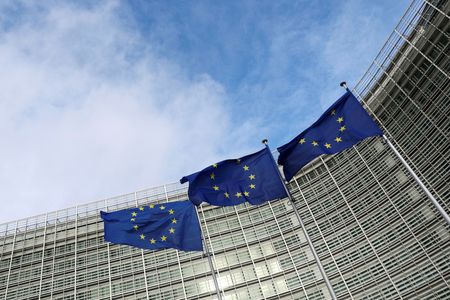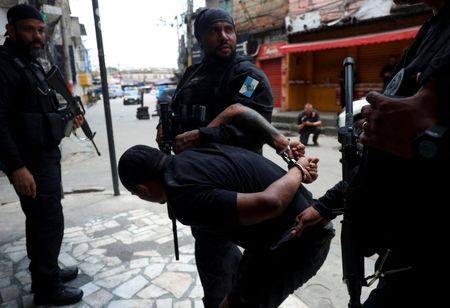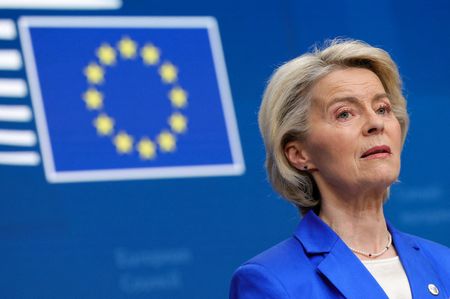By Kate Abnett
BRUSSELS (Reuters) -The European Union will start pooling demand from European companies to buy gas in the coming weeks, its energy commissioner said, as the bloc attempts to speed up its efforts to phase out Russian energy.
The EU is negotiating legal proposals to ban all Russian oil and gas imports by January 2028, and adopted sanctions last week that will ban Russian liquefied natural gas sooner, from January 2027.
That will require countries still receiving Russian gas to break those contracts and source alternative supplies. EU members including France and Belgium still import Russian LNG, while others including Slovakia and Hungary take Russian gas deliveries via pipeline.
EU Energy Commissioner Dan Jorgensen said Brussels would relaunch its gas demand pooling system in the coming weeks, “to help get competitively priced and diversified supplies”.
“We will launch a dedicated gas demand aggregation exercise for companies in this region,” Jorgensen said in a post on X, during a trip to Romania and Bulgaria.
The new pool will target gas buyers in central, eastern and south-eastern Europe. Hungary and Slovakia have warned replacing Russian gas could raise energy prices, and opposed the EU’s planned exit from Russian gas.
The EU is seeking to rapidly increase its LNG imports from the United States – having pledged to buy $250 billion in U.S. energy per year under a trade deal with President Donald Trump.
The EU first began pooling companies’ demand for gas in 2022 to attempt to replace Russian fuel with alternative supplies in response to the Ukraine war.
However, it is not clear how much gas buying it has facilitated. The EU platform pools demand and then matches buyers with gas suppliers. Matched companies then negotiate gas contracts, but the EU is not involved in those commercial talks – and firms have so far not been obliged to disclose any deals they sign.
(Reporting by Kate Abnett; Editing by Emelia Sithole-Matarise)











